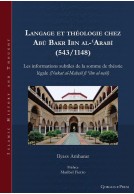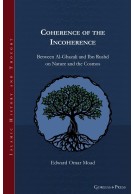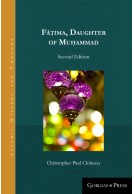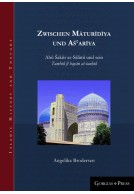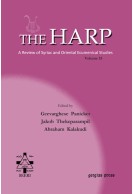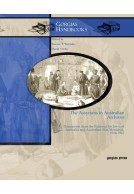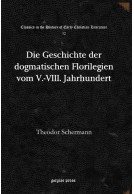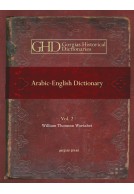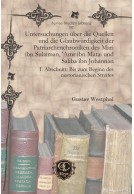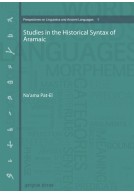The Shīʿī Past in the Great Book of the Songs (Hardback)
A New Perspective on the Kitāb al-Aghānī by Abū al-Faraj al-Iṣfahānī and Shīʿī Islam in the Tenth Century
Imprint: Gorgias Press
Series: Islamic History and Thought
Pages: 500
ISBN: 9781463207144
Published: 26th February 2021
Script Academic
Series: Islamic History and Thought
Pages: 500
ISBN: 9781463207144
Published: 26th February 2021
Script Academic
Please note this book may be printed for your order so despatch times may be slightly longer than usual.
You'll be £115.00 closer to your next £10.00 credit when you purchase The Shīʿī Past in the Great Book of the Songs. What's this?
+£4.99 UK Delivery or free UK delivery if order is over £40
(click here for international delivery rates)
Order within the next 5 hours, 6 minutes to get your order processed the next working day!
Need a currency converter? Check XE.com for live rates
(click here for international delivery rates)
Order within the next 5 hours, 6 minutes to get your order processed the next working day!
Need a currency converter? Check XE.com for live rates
The Kitāb al-Aghānī (the Book of the Songs) stands as one of the most important extant sources for Arabic literature and Islamic history. Compiled during the first half of the tenth century, the Kitāb al-Aghānī emerges from a pivotal period in the formation of Islamic sectarian identities, a subject of keen and ongoing scholarly debate that is fundamental to our understanding of the later development of Shīʿī Islam. While its compiler, Abū al-Faraj al-Iṣfahānī (died after 356/967), is generally viewed as a 'Zaydī Shīʿī', no in-depth study has investigated what can be gauged from the Kitāb al-Aghānī about his sectarian perspectives.
The present study addresses the question of whether or not al-Iṣfahānī's sectarian leanings can be discerned from the Kitāb al-Aghānī through an analysis based primarily on redaction criticism. By examining the compiler's editorial interventions, this book argues that al-Iṣfahānī, to some extent at least, presents past people and events central to the Shīʿī worldview in accordance with his sectarian affiliation. Furthermore, this work questions the label 'Zaydī' that is commonly associated with al-Iṣfahānī. Based on textual analyses of the Kitāb al-Aghānī, as well as on evidence from his Maqātil al-Ṭālibīyīn ('The Ṭālibid Martyrs') and other sources rooted in the tenth-century milieu, this book suggests that al-Iṣfahānī's religious thought can be construed as a 'mild' form of Shīʿism - in the sense that it neither comprises belief in a specific lineage of imams, nor repudiation of most of the Companions including the first three caliphs. However, it cannot necessarily be identified with any sect, as set down in the heresiography.
Other titles in the series...
Other titles in Gorgias Press...









